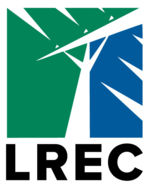There has been a lot of news lately about the Midcontinent Independent System Operator (MISO) and periodic power outages (commonly known as rolling blackouts). We are halfway through a hot and humid summer and the stress that these weather conditions have placed on the electric grid has been managed by Great River Energy (GRE) and Lake Region Electric Cooperative (LREC) very well. The grid has performed as expected, even when demand for electricity has approached record levels. I am pleased that LREC’s mission to deliver safe and affordable electricity to our members has not been compromised by periodic power outages. MISO implemented conservative operations on June 15th in anticipation of the extreme weather conditions, but it never enacted any emergency measures to maintain system reliability.
In light of all of the headlines this year regarding periodic power outages and capacity concerns, it has become even more apparent that we need to continue to work with our members, representatives, and partners to become more agile when it comes to responding to extreme weather conditions. This agility can be attained by revisiting and revising regulations and policies of all kinds, including, but not limited to, permitting processes required for many projects that could positively serve our members and beyond. We are in good shape financially and well positioned to manage and handle tough and inconsistent weather conditions. As of the date this column is being written, there have been no periodic power outages that have affected our service territory, even though there have been many hot and humid days.
MISO manages the power grid for 42 million people in the U.S. and delivers electric power across 15 states and Manitoba. MISO consists of 56 transmission owners, including Great River Energy, Otter Tail Power Co., and Xcel Energy, and 128 non-transmission owners. I think of MISO as the air traffic controller that directs how electricity is delivered throughout the 15 states and Manitoba.
The North American Electric Reliability Corporation (NERC) indicated the north and central areas of MISO are in a “high risk” category due to generator retirements and increased demand. GRE serves the northern area of MISO. GRE’s position is that our area’s risk for service disruption is “slightly higher” this summer due to increased demand. To provide some perspective, the typical planning reserve margin in MISO is 8.7%, and the actual reserve margin right now is around 7.7%, which creates a 1.2 GW shortage in capacity. When the margin is at its typical 8.7%, we would expect a loss of load for one day every 10 years—compared to a loss of load for one day every 5.6 years when the margin is at its current position of 7.7%. The planning reserve margin measures the amount of generation capacity available to meet unusually high demand or generation outages this year. Loss of load describes the situation when the available generation capacity is less than the system load.
This summer has demonstrated GRE’s power supply strategy in action. GRE wind resources have provided low-cost energy and its natural gas peaking plants were ready to ensure reliability for the grid and provide energy hedges for LREC and as market prices escalated. LREC and other GRE members have for years participated in programs that make the electric system healthier and more reliable, particularly during extreme hot or cold days when demand for electricity is increased. LREC offers many demand response programs — currently, there are approximately 14,000 LREC members enrolled in at least one of them. I encourage all of you, whether you are currently enrolled in a program or not, to connect with us to learn more about them. These programs allow us all to work together and reduce stress on the grid.
 Periodic power outages are used as a last resort to keep the system in balance. Load shed protocols and processes are defined and drilled routinely, so when these events happen, GRE is ready. Please be assured that both LREC and GRE continue to strategically prepare for local and regional extreme weather challenges so that we may continue to count on safe electricity being delivered.
Periodic power outages are used as a last resort to keep the system in balance. Load shed protocols and processes are defined and drilled routinely, so when these events happen, GRE is ready. Please be assured that both LREC and GRE continue to strategically prepare for local and regional extreme weather challenges so that we may continue to count on safe electricity being delivered.

We are continually looking for ways to better connect with our members. We are excited to bring a new element to our newsletters —Virtual Chats! We believe that offering more methods of communication will be a positive experience that assists with learning more about your co-op. Click to see a video from LREC CEO Tim Thompson.
 Lake Region Electric Cooperative
Lake Region Electric Cooperative